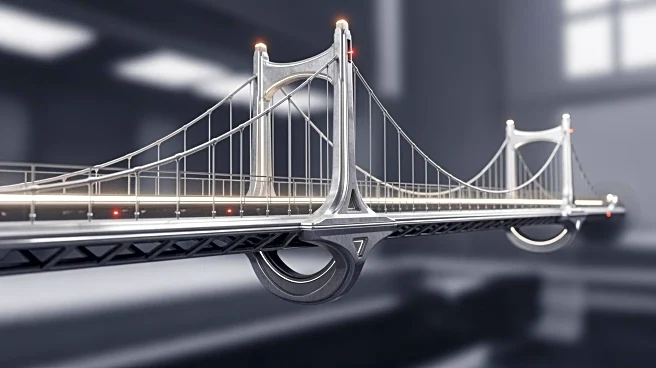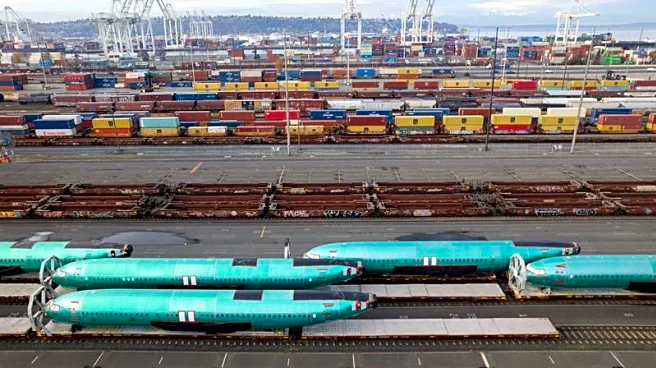What's Happening?
The integration of AI in engineering is transforming the industry, but the reality is more nuanced than the hype suggests. While AI automates many engineering tasks, such as CAD dimensioning and predictive
maintenance, it falls short of achieving artificial general intelligence (AGI). Current AI systems excel at narrow, well-defined problems but struggle with the deep, contextual reasoning required in complex industrial environments. The challenge lies in the data sparsity and the need for AI systems to incorporate physical principles to navigate uncertainty. Despite these limitations, advancements in scientific machine learning and reasoning algorithms are enhancing AI's capabilities in engineering.
Why It's Important?
The application of AI in engineering is crucial for driving efficiency, innovation, and sustainability in industrial systems. By addressing the gaps between data, statistical prediction, and physical understanding, AI can amplify human capabilities and accelerate innovation. This transformation is essential for maintaining competitiveness in the engineering sector, as companies seek to optimize operations and reduce emissions. The ongoing development of AI technologies will likely redefine the role of engineers, emphasizing collaboration between human expertise and AI's computational power.
Beyond the Headlines
The future of AI in engineering is not about replacing human jobs but enhancing them. As AI systems become more integrated into industrial workflows, engineers will need to adapt to new technologies and collaborate with AI to solve complex problems. This shift could lead to a more resilient and innovative industrial landscape, where AI and human expertise work together to achieve greater efficiency and sustainability. The ethical implications of AI in engineering, such as job displacement and decision-making transparency, will also need to be addressed as the technology evolves.











